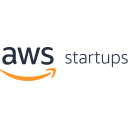Vercel vs Cloudflare: Which tool offers the best hosting and optimization?
- 01Vercel vs Cloudflare: overview
- 02What's the difference between Vercel and Cloudflare?
- 03Vercel pros and cons
- 04Cloudflare pros and cons
- 05Vercel compared to Cloudflare
- 06Cloudflare compared to Vercel
- 07Features comparison
- 08Vercel vs Cloudflare: Which is the best for your business?
- 09Promotions on Web Development software
- 10Alternatives to Vercel & Cloudflare
Save up to $250,000 on Cloudflare
Save up to $250,000 on Cloudflare
Efficient web hosting and content delivery are crucial for optimizing website performance and user experience. The solution? Hosting platforms like Vercel and Cloudflare. These services offer advanced features and optimizations to ensure your website loads quickly and reliably, supporting your online presence.
However, with numerous hosting options available, choosing the right one can be daunting. In this comparison, we'll delve into the specifics of Vercel vs Cloudflare. By examining their key features, performance metrics, and pricing structures, you'll gain valuable insights to make an informed decision about which platform suits your hosting and content delivery needs best.
Vercel vs Cloudflare: overview
Vercel and Cloudflare are prominent contenders in the realm of web hosting and content delivery, each offering distinctive features and benefits tailored to different website needs.
Vercel is renowned for its seamless deployment workflows and integration with popular frameworks like Next.js. It provides developers with a streamlined platform for deploying static sites, serverless functions, and Jamstack applications. On the other hand, Cloudflare is celebrated for its global network infrastructure and robust security features. It offers a suite of services including content delivery, DDoS protection, and firewall capabilities, enhancing website performance and security.
Now, let's delve into the Vercel vs. Cloudflare comparison to assist you in making an educated decision when selecting the right hosting and content delivery solution for your specific requirements.
What's the difference between Vercel and Cloudflare?
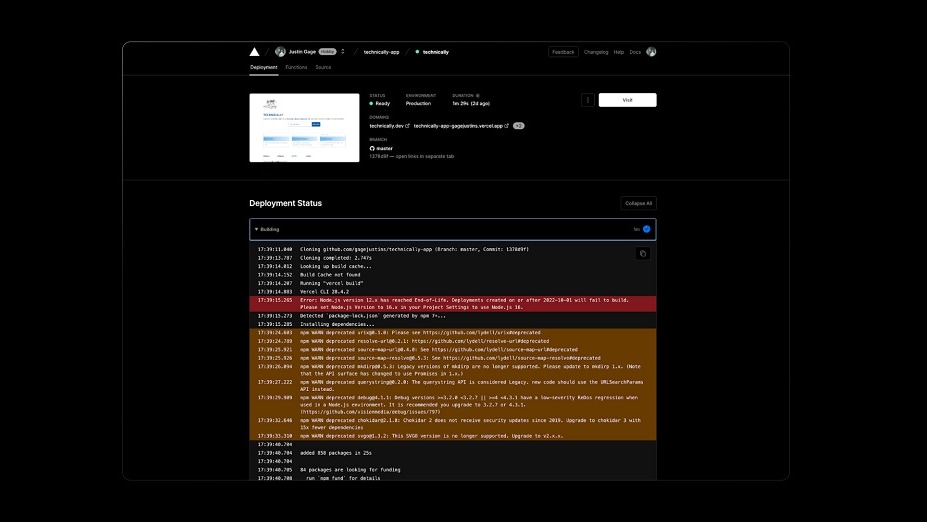
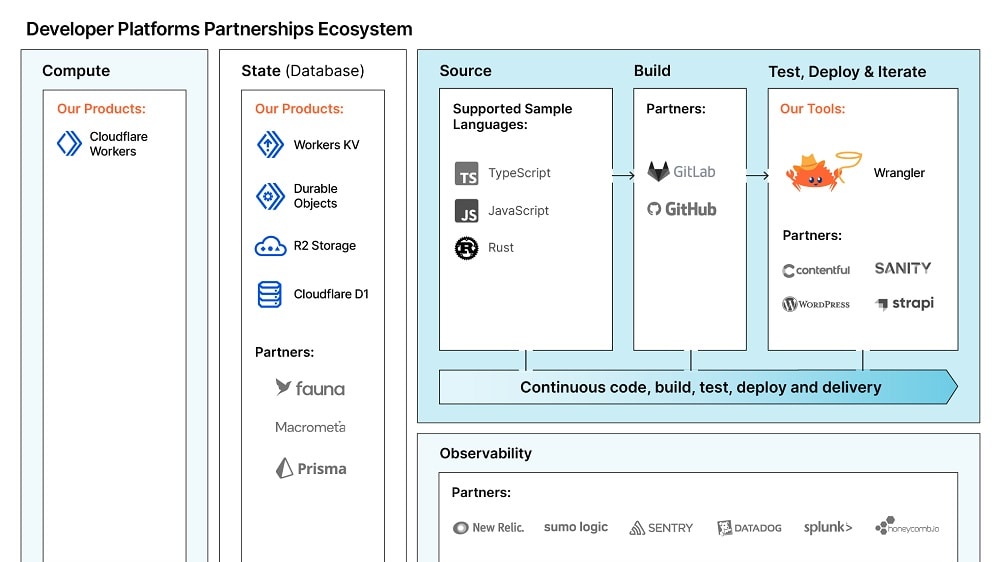
Vercel and Cloudflare are both leading platforms in the domain of web hosting and content delivery, aiming to optimize website performance and enhance user experiences. Despite their shared goals, there are distinct differences between them that may influence your decision when choosing the right platform for your specific needs.
One key difference lies in their core offerings and focuses. Vercel is primarily geared towards developers, offering a streamlined platform for deploying static sites, serverless functions, and Jamstack applications. It prioritizes seamless deployment workflows and tight integration with popular frameworks like Next.js, catering to the needs of developers seeking efficient hosting solutions for their projects. On the other hand, Cloudflare offers a comprehensive suite of services beyond hosting, including content delivery, DDoS protection, and firewall capabilities. Its global network infrastructure and robust security features make it suitable for a wide range of websites, from small blogs to large enterprise applications.
Another notable distinction is their approach to pricing and features. Vercel's pricing structure is based on usage metrics such as bandwidth and serverless function invocations, with a generous free tier available for smaller projects. In contrast, Cloudflare offers a range of pricing plans tailored to different needs, with features like advanced security options and enhanced support available at higher tiers. Additionally, Cloudflare's free plan provides access to basic features such as CDN and DDoS protection, making it an attractive option for individuals and small businesses looking to improve their website performance without incurring additional costs.
Furthermore, the level of customization and control varies between the two platforms. Vercel offers a user-friendly interface and straightforward deployment process, making it easy for developers to get started quickly. However, Cloudflare provides more extensive configuration options and fine-grained control over settings, allowing users to tailor their setup to meet specific requirements.
Vercel pros and cons
What are the advantages of Vercel?
- Simplified deployment: Vercel offers an incredibly streamlined deployment process, especially for Jamstack applications. With features like Git integration and automatic deployments, developers can easily push updates and changes to their projects without hassle.
- Performance optimization: Vercel prioritizes performance, providing a global content delivery network (CDN) and optimized asset serving. This results in faster load times for websites and applications hosted on the platform, enhancing user experience.
- Serverless functions: Vercel seamlessly integrates serverless functions into its hosting environment, allowing developers to run backend logic without managing servers. This reduces operational overhead and enables scalable and cost-effective solutions.
- Next.js support: As the creators of Next.js, Vercel offers excellent support for this popular React framework. Developers benefit from features like automatic static optimization, incremental static regeneration, and server-side rendering, enhancing the performance and SEO-friendliness of their applications.
- Team collaboration: Vercel provides robust collaboration features, including team management, access controls, and collaboration spaces. This facilitates teamwork among developers, designers, and other stakeholders, fostering a productive and collaborative environment.
What are the disadvantages of Vercel?
- Limited flexibility: While Vercel excels in hosting static and Jamstack applications, it may not be the best choice for projects requiring more flexibility or server-side processing. Its focus on simplicity and performance means sacrificing certain customization options available with traditional hosting solutions.
- Complex pricing structure: Vercel's pricing can be complex to understand, especially for projects with varying traffic or resource requirements. Users may find it challenging to predict and manage costs effectively, leading to potential budgetary concerns.
- Dependency on external services: Vercel heavily relies on external services like GitHub and GitLab for continuous integration and deployment. While this integration streamlines development workflows, it also means that downtime or disruptions in these services can impact Vercel's functionality.
- Limited support for non-JavaScript projects: While Vercel provides excellent support for JavaScript-based frameworks like React and Next.js, it may not be the best choice for projects using other programming languages or technologies. This limitation can restrict the platform's suitability for certain applications.
- Learning curve for beginners: While Vercel offers a user-friendly interface and extensive documentation, beginners may still encounter a learning curve, especially when setting up more complex projects or utilizing advanced features like serverless functions. Additional support or resources may be required to fully leverage the platform's capabilities.
Compare Vercel to other tools
Cloudflare pros and cons
What are the advantages of Cloudflare?
- Global Content Delivery Network (CDN): Cloudflare operates one of the largest and fastest CDN networks globally, which helps speed up the delivery of web content to users around the world. This results in improved website performance and reduced latency.
- Security features: Cloudflare offers a wide range of security features, including DDoS protection, Web Application Firewall (WAF), SSL encryption, and bot mitigation. These features help protect websites from various online threats and vulnerabilities.
- DNS management: Cloudflare provides advanced DNS management capabilities, allowing users to easily configure DNS settings, set up DNSSEC for added security, and leverage features like load balancing and failover routing.
- Scalability and reliability: Cloudflare's infrastructure is designed for scalability and reliability, ensuring that websites hosted on the platform can handle large amounts of traffic without experiencing downtime or performance issues.
- Analytics and insights: Cloudflare offers comprehensive analytics and insights into website traffic, performance, and security threats. Users can gain valuable insights into their website's performance and visitor behavior, enabling them to make informed decisions for optimization and security enhancements.
What are the disadvantages of Cloudflare?
- Complex configuration: Setting up and configuring Cloudflare's advanced features, such as firewall rules and caching settings, can be complex and may require technical expertise. Users may need to spend time learning how to use these features effectively.
- Potential performance trade-offs: While Cloudflare's CDN generally improves website performance, certain configurations or settings may lead to performance trade-offs or compatibility issues with specific web applications or content management systems.
- Cost: While Cloudflare offers a free tier with basic features, more advanced features and capabilities are available through paid plans, which can be expensive for some users, especially those with high traffic volumes or specific security requirements.
- Limited control over cache: Cloudflare's caching system provides benefits for many websites, but it may not offer the level of control or customization that some users require. This can lead to caching-related issues or limitations for certain web applications.
- Support limitations: Cloudflare's support options may be limited for users on free or lower-tier plans, with priority support and access to technical experts typically reserved for higher-tier plans. This can be challenging for users who require timely assistance with technical issues or configuration challenges.
Compare Cloudflare to other tools
Vercel compared to Cloudflare
Vercel and Cloudflare are both prominent players in web hosting and content delivery, yet they serve distinct purposes. Vercel focuses on providing developers with a streamlined platform for deploying static sites, serverless functions, and Jamstack applications. Its emphasis on simplicity and performance makes it an excellent choice for developers seeking efficient hosting solutions.
On the other hand, Cloudflare offers a comprehensive suite of services beyond hosting, including content delivery, DDoS protection, and firewall capabilities. Its global network infrastructure and robust security features cater to a wide range of websites, from small blogs to large enterprise applications.
Is Vercel better than Cloudflare?
When comparing Vercel and Cloudflare, it's crucial to consider the unique needs of your project. While Vercel excels in offering a developer-friendly environment tailored for deploying modern web applications with ease, Cloudflare stands out for its extensive network and security services that provide a solid foundation for web presence.
The choice between Vercel and Cloudflare ultimately hinges on the specific requirements of your project. If the priority is a seamless deployment process for web apps, Vercel might be the better choice. However, for broader security and distribution needs, Cloudflare's expansive offerings could be more beneficial, ensuring optimal performance and protection.
What is Vercel best used for?
Vercel is best used for hosting and deploying static sites, serverless functions, and Jamstack applications. With its seamless integration with popular frameworks like Next.js and Gatsby, Vercel simplifies the deployment process for developers, enabling them to push updates and changes effortlessly.
It prioritizes performance and scalability, offering features such as global content delivery networks (CDNs) and automatic scaling of serverless functions. Vercel's focus on simplicity and efficiency makes it an ideal choice for developers and teams looking to build and deploy modern web applications quickly and reliably, without the complexity of managing infrastructure.
Can Vercel replace Cloudflare?
While Vercel excels in hosting and deploying web applications, it cannot fully replace Cloudflare. Vercel primarily focuses on providing a streamlined platform for hosting static sites, serverless functions, and Jamstack applications, with an emphasis on developer experience and simplicity.
In contrast, Cloudflare offers a comprehensive suite of services beyond hosting, including content delivery, DDoS protection, and firewall capabilities. Its global network infrastructure and robust security features cater to a wide range of websites and applications. While Vercel may complement certain aspects of Cloudflare's offerings, it does not provide a complete replacement for the diverse functionality and services that Cloudflare offers.
Is Vercel cheaper than Cloudflare?
Determining whether Vercel is cheaper than Cloudflare depends on the specific requirements of your project. Vercel offers a straightforward pricing structure based on usage metrics such as bandwidth and serverless function invocations, with a generous free tier available for smaller projects.
In contrast, Cloudflare offers a range of pricing plans tailored to different needs, with features like advanced security options and enhanced support available at higher tiers. While Vercel may be more cost-effective for certain projects with lower resource requirements, Cloudflare's pricing may offer better value for larger-scale applications requiring extensive security and performance features.
Is there a better Web Development software than Vercel?
Determining whether there's a "better" software than Vercel depends on your specific web hosting and content delivery needs. Vercel stands out for its streamlined deployment workflows, performance optimization, and seamless integration with frameworks like Next.js. It's favored by developers for its simplicity and focus on Jamstack applications.
However, alternatives to Vercel like Netlify, AWS Amplify, CircleCI, and Cloudways may better suit certain projects. For example, Netlify offers similar features with additional capabilities for continuous deployment and serverless functions. AWS Amplify provides a comprehensive suite of cloud services for building and deploying scalable applications.
Cloudflare compared to Vercel
Cloudflare and Vercel are leading platforms in web hosting and content delivery, each with distinct strengths. Cloudflare offers a comprehensive suite of services beyond hosting, including content delivery, DDoS protection, and firewall capabilities. Its global network infrastructure and robust security features cater to a wide range of websites and applications.
In contrast, Vercel specializes in hosting static sites, serverless functions, and Jamstack applications, prioritizing simplicity and performance. With seamless deployment workflows and integration with popular frameworks like Next.js, Vercel appeals to developers seeking efficient hosting solutions.
Is Cloudflare better than Vercel?
Deciding whether Cloudflare is superior to Vercel depends largely on the specific needs and goals of your web project. Cloudflare shines with its extensive network and sophisticated security features, making it an ideal choice for those prioritizing website protection and global content delivery. Its ability to handle large volumes of traffic and defend against cyber threats offers peace of mind for websites of all sizes.
On the other hand, if your project demands a developer-centric approach with a focus on modern web technologies and quick deployment cycles, Vercel's specialized services may provide more value.
What is Cloudflare best used for?
Cloudflare is best used for enhancing website performance and security. As a leading content delivery network (CDN), Cloudflare accelerates the delivery of web content, reducing latency and improving user experience globally. Its robust security features, including DDoS protection, Web Application Firewall (WAF), and SSL encryption, safeguard websites from various online threats and vulnerabilities.
Additionally, Cloudflare's DNS management capabilities allow users to optimize website availability and performance through load balancing and failover routing. With its scalable infrastructure and comprehensive security offerings, Cloudflare is ideal for businesses and organizations looking to optimize their online presence while ensuring robust protection against cyber threats.
Can Cloudflare replace Vercel?
Cloudflare and Vercel serve different purposes and cater to distinct needs in web hosting and content delivery. While Cloudflare offers a comprehensive suite of services including content delivery, DDoS protection, and security features, Vercel specializes in hosting static sites, serverless functions, and Jamstack applications with a focus on simplicity and performance.
While Cloudflare may complement certain aspects of Vercel's offerings, such as providing additional security and performance enhancements, it cannot fully replace Vercel's specialized hosting capabilities.
Is Cloudflare cheaper than Vercel?
Determining whether Cloudflare is cheaper than Vercel depends on the specific requirements of your web hosting and content delivery needs. Cloudflare offers a range of pricing plans tailored to different needs, with features like content delivery, DDoS protection, and security enhancements available at various price points.
In contrast, Vercel's pricing structure is based on usage metrics such as bandwidth and serverless function invocations, with a generous free tier available for smaller projects.
Is there a better Security software than Cloudflare?
Determining whether there's a superior software to Cloudflare depends on your specific web hosting and content delivery needs. Various alternatives cater to diverse requirements.
Alternatives to Cloudflare include Akamai, Fastly, and AWS CloudFront, each offering unique strengths. For instance, Akamai is renowned for its extensive network infrastructure and enterprise-grade security features, while Fastly excels in real-time content delivery and edge computing capabilities. The choice of the optimal software hinges on factors such as scalability requirements, security needs, and budget considerations.
$250,000 in credits for 1 year on Cloudflare
Get $250,000 in credits for 1 year on Cloudflare and up to $250,000 savings with Secret.
Features comparison
Vercel's User-Friendly Interface Outshines Cloudflare's Robustness

When it comes to ease-of-use, both Vercel and Cloudflare aim to simplify web hosting and content delivery. However, Vercel stands out for its exceptional user-friendliness. With a clean and intuitive interface, Vercel caters even to non-technical users, making tasks like deploying a global CDN or enabling automatic HTTPS effortless. Its streamlined controls and straightforward setup processes ensure a hassle-free experience for beginners.
In contrast, while Cloudflare offers powerful features, its interface can be overwhelming with a multitude of options and toggles, potentially daunting to newcomers. Vercel's expedited learning curve and intuitive design give it a distinct advantage in usability.
Cloudflare's Traffic Management Supersedes Vercel's Load Balancing
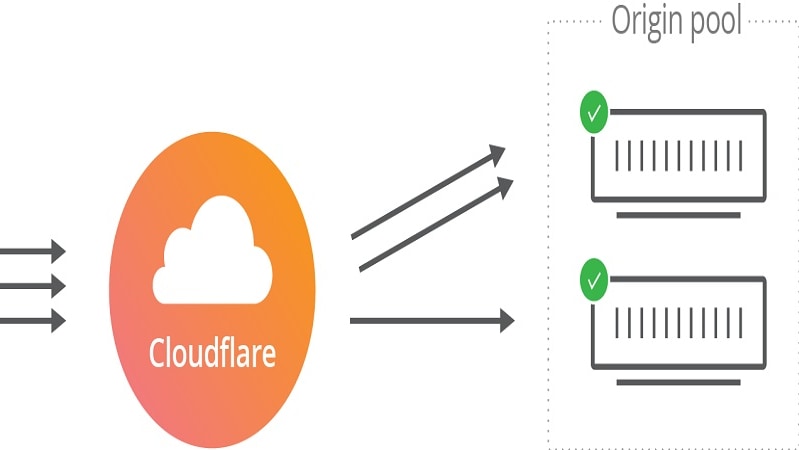
Cloudflare's advanced load balancing and traffic management features guarantee high availability and peak performance for applications. By intelligently distributing incoming traffic across multiple servers or data centers, it automatically redirects users to the nearest and healthiest server, optimizing response times and minimizing latency.
While Vercel streamlines the development-to-production process with automated workflows, it lacks a direct counterpart to Cloudflare's superior traffic management capabilities. Cloudflare's robust infrastructure ensures seamless scalability and reliability, making it a preferred choice for businesses and organizations seeking optimal performance and availability for their applications and websites.
Cloudflare's Enhanced Security Outshines Vercel's Protection

Vercel and Cloudflare both prioritize security in their infrastructures, yet Cloudflare distinguishes itself with an additional layer of protection. Beyond defending against common threats like DDoS attacks and bots, Cloudflare's Zero Trust services offer comprehensive safeguards against data loss, phishing, and malware. This comprehensive security suite ensures optimal performance and protects sensitive data from evolving cyber threats.
By offering advanced security solutions that go beyond conventional measures, Cloudflare surpasses Vercel in providing users with peace of mind and robust protection against a wide range of online threats.
Cloudflare's Extensive Integration Ecosystem Surpasses Vercel's Offerings
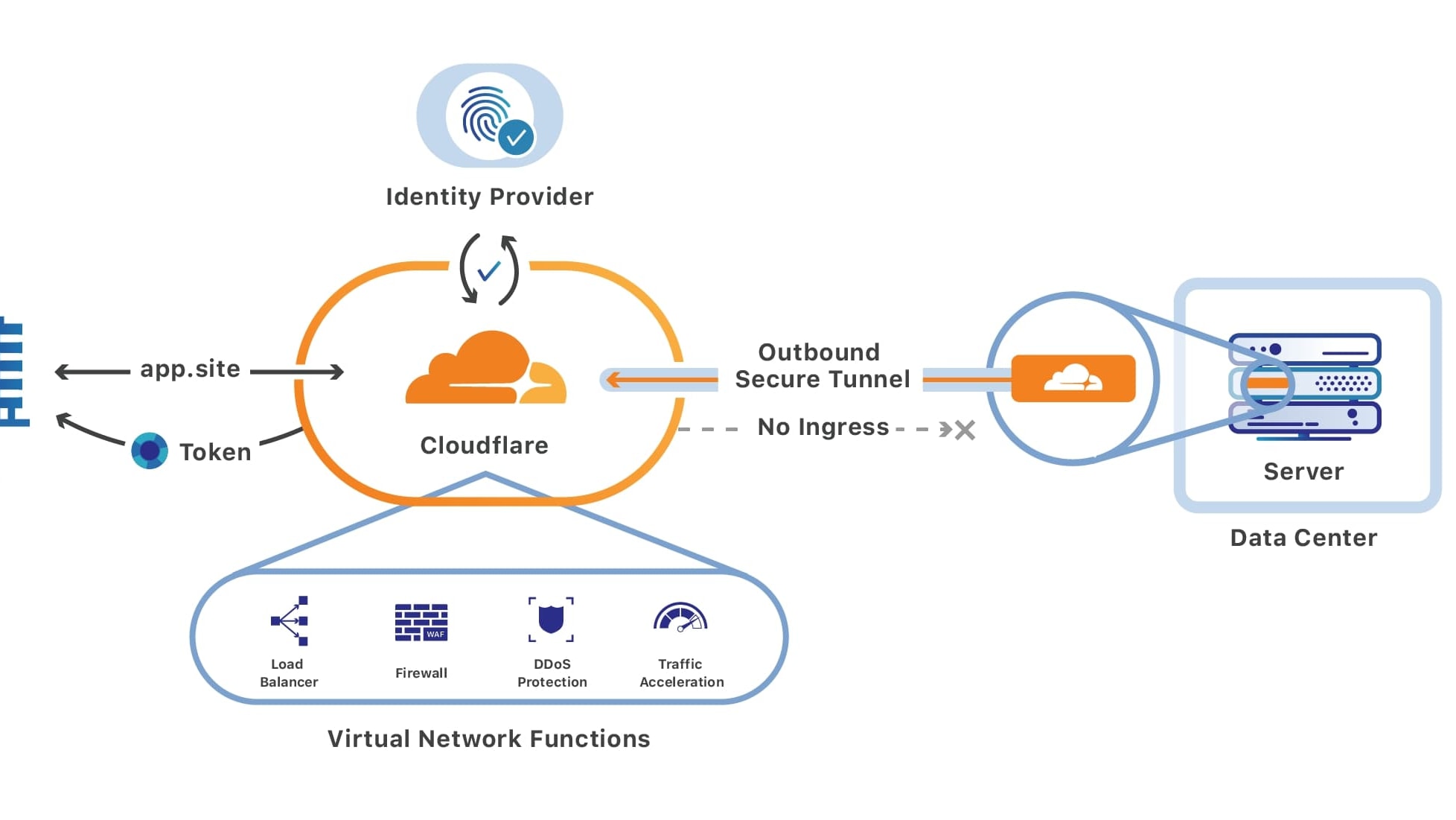
When it comes to integrations, Cloudflare takes the lead with its expansive ecosystem of partners and services. Cloudflare boasts a wide array of integrations spanning security, web optimization, and developer tools, providing users with a comprehensive toolkit to enhance their websites and applications.
With robust APIs, developers can seamlessly integrate Cloudflare services into their workflows, offering flexibility and customization options. From partnering with leading security providers to offering seamless integrations with popular developer tools, Cloudflare's integration possibilities are vast and diverse. While Vercel offers essential integrations with platforms like GitHub and GitLab, it falls short in comparison to Cloudflare's extensive ecosystem, giving Cloudflare the edge in integration capabilities.
Vercel Leverages Edge Computing More Effectively Than Cloudflare
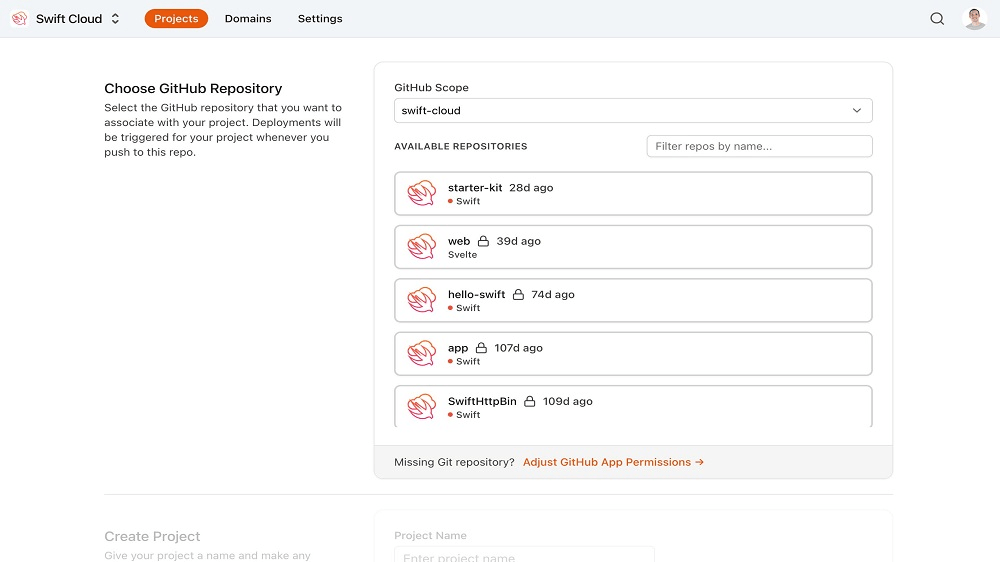
Vercel distinguishes itself by fully leveraging the capabilities of edge computing, allowing developers to deploy frameworks and functions instantly with a single command line, regardless of location. This unparalleled agility grants Vercel users a competitive edge in delivering seamless and responsive web experiences. In contrast, while Cloudflare enhances performance through its extensive global network, it lacks the same level of presence at the edge.
Consequently, developers utilizing Vercel enjoy faster code execution and reduced latency compared to their counterparts relying solely on Cloudflare's infrastructure. Vercel's emphasis on edge computing solidifies its position as a preferred choice for developers prioritizing speed and efficiency.
Collaboration Is Equally Convenient In Both Vercel and Cloudflare

Vercel and Cloudflare both foster collaborative development environments, albeit through different approaches. Vercel's Next.js Live feature facilitates real-time collaboration by allowing instant sharing, discussion, and modification of pages directly within a browser. This seamless collaborative workflow enhances team productivity and communication, regardless of geographical distance.
Similarly, Cloudflare offers a platform for deploying serverless code globally, enabling teams to work together on projects and applications from anywhere in the world. Both platforms prioritize teamwork and cooperation, providing developers with the tools they need to collaborate effectively, regardless of their physical location.
Cloudflare's Comprehensive Analytics Surpass Vercel's Insights
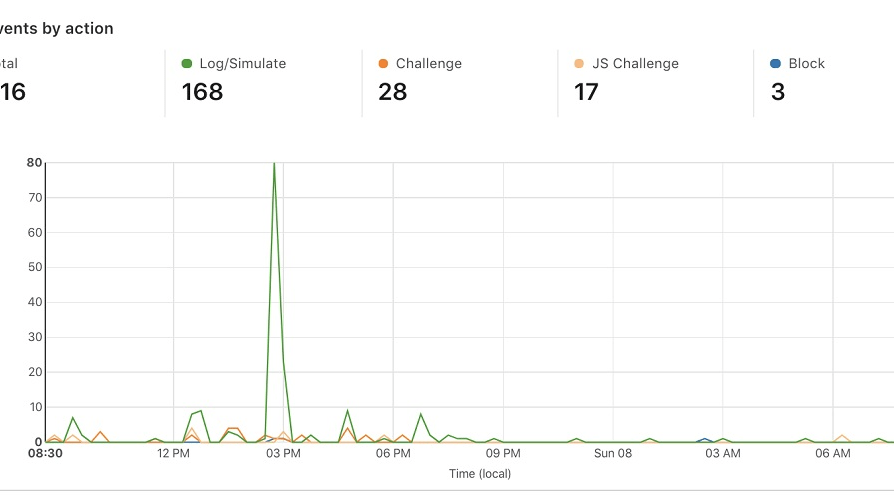
Vercel and Cloudflare both provide analytics tools, yet Cloudflare offers a broader range of metrics and insights. While Vercel delivers an overall score describing user experiences through a clear and intuitive dashboard, Cloudflare offers comprehensive real-time analytics and reporting on various aspects including web traffic, application performance, user behavior, and DNS queries.
This extensive data allows for in-depth analysis and optimization of website and application performance. While Vercel's focus on user experience is valuable, Cloudflare's multifaceted analytics suite provides developers and businesses with a deeper understanding of their online presence, potentially offering more actionable insights for improvement.
Subscribe to our newsletters.
No FOMO here. Stay up-to-date on all the latest deals and news with our monthly newsletter straight to your inbox like 118,000+ entrepreneurs (+ Get 10% off on on our Premium Membership!)
Vercel vs Cloudflare: Which is the best for your business?
Vercel is the best tool for you if:
- You're developing modern web applications, especially with technologies like React, Vue, and Next.js, and need a platform that supports seamless deployment and instant updates.
- You prioritize developer experience and productivity, with Vercel offering intuitive workflows, automatic deployments from Git, and simplified domain management for an efficient development process.
- Your project leverages serverless architecture, as Vercel excels in hosting serverless functions alongside static content, providing scalability without the need for managing servers.
- Performance and speed are critical for your web application, with Vercel optimizing delivery through global CDN, smart caching, and edge functions to enhance user experience.
- You require a platform that integrates easily with headless CMSs and other development tools, enabling a more streamlined build process and dynamic content updates for Jamstack applications.
Cloudflare is the best tool for you if:
- Your primary concern is security, as Cloudflare offers advanced DDoS protection, a web application firewall, and SSL encryption to safeguard your website against a multitude of threats.
- You require a robust CDN to ensure fast content delivery across the globe, leveraging Cloudflare's vast network to reduce latency and improve website performance for a global audience.
- You are looking for a comprehensive DNS management solution, with Cloudflare providing speedy and secure DNS services that are crucial for website reliability and accessibility.
- Scalability is a key factor for your project, as Cloudflare's infrastructure is designed to handle sudden spikes in traffic, ensuring your website remains online and performs well under heavy loads.
- You value analytics and insights into your web traffic, with Cloudflare offering detailed analytics on website visitors, threats blocked, and performance metrics to help you optimize your site.
Alternatives to Vercel & Cloudflare
Promotions on Web Development software
Start saving on the best SaaS with Secret.
Secret has already helped tens of thousands of startups save millions on the best SaaS like Vercel, Cloudflare & many more. Join Secret now to buy software the smart way.





